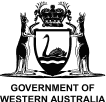Photo credit: WAMSI & UWA.
Westport has partnered with the Western Australian Marine Science Institution (WAMSI) to deliver the $13.5 million WAMSI-Westport Marine Science Program. This 3-year program is developing the latest data, information and modelling on the complex environmental systems and community values associated with Cockburn Sound.
Project 8.1: Study on how to mitigate the impacts on Little Penguins during potential dredging activities
Project theme: Apex predators and iconic species
Researchers: B Cannell
Publication date: December 2023
Understanding the Little Penguins of Cockburn Sound
An iconic, pint-sized seabird, Little Penguins (or Fairy Penguins) are a much-loved feature for visitors to Rockingham’s Penguin Island.
With other Little Penguin colonies located in Albany and South Australia, the Penguin Island colony is the most northern known, right on the edge of what would be considered a ‘habitable’ zone for this species.
They’ve been finding it tough. It’s estimated the ‘Perth’ colony, which inhabits both Penguin Island and Garden Island, currently numbers only 300 birds, after the population was impacted in 2021 by a 1%-2% increase in surface water temperature due to an El Nino event.
As well as climate change, a decline in prey is also an issue for Little Penguins, who spend most of their day foraging for fish in Shoalwater Bay.
Conservation ecologist Dr Belinda Cannell undertook a months-long research program as part of the $13.5m WAMSI Westport Marine Science Program into the foraging and breeding habits of Little Penguins in Cockburn Sound.
Westport will use this research to plan for activities related to the development of the new port, like dredging, so it can be undertaken in ways that will reduce impacts to the local Little Penguin colony.
What the report found:
- Little penguin breeding season and pre-moult season runs from April to January.
- Penguins foraging within Cockburn Sound were found to predominantly prey on scaly mackerel (Sardinella lemuru), anchovy (Engraulis australis) and pilchard (Sardinops sagax).
- Starvation is the second-most prevalent cause of mortality of the local Little Penguins.
The report provided a number of recommendations for Westport to consider in any dredging program to reduce the impacts on the Little Penguins and their food sources:
- Avoid dredging during breeding and pre-moult periods.
- Employ best practice dredging management to control the extent, duration, and intensity of the dredge plume on penguins.
- Minimise the impact of dredging on coastal fish (the penguins prey species) by keeping sediment concentrations below critical thresholds, subject to definition of those thresholds in the research project 4.4: The effects of total suspended sediment associated with dredging on fishes and limiting dredging during known fish spawning times.
- Ensure good food supplies during the breeding season, by using fish aggregating devices to draw fish to areas not impacted by dredging but within the typical home range of the penguins.
This report represents the first of several WWMSP studies focused on informing effective management of the dredging programs potential impacts on marine habitat and species.
Little penguins in Cockburn Sound are already a small population at the northern extent of their range and under existing stress. Although Westport will not be impacting the breeding grounds of little penguins, the environmental impact assessment for Westport will need to consider the potential impacts to the food supply.
You can read the full report here.





